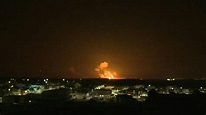Featured
article
- Get link
- X
- Other Apps
Diplomacy on the Brink: Europe Seeks Dialogue as U.S. Weighs Military Action

In a tense geopolitical moment, European foreign ministers are making a concerted push to revive diplomatic talks with Iran amid escalating tensions in the Middle East. The E3—comprising the United Kingdom, France, and Germany—alongside the European Union’s foreign policy chief, are set to meet Iranian officials in Geneva in a last-ditch effort to de-escalate the crisis surrounding Iran’s nuclear program.
This diplomatic outreach comes as former U.S. President Donald Trump signals he may support Israeli military action against Iran, following the collapse of U.S.-Iran negotiations and Israel’s recent Operation Rising Lion targeting Iranian nuclear and missile facilities. Trump has stated he will decide within two weeks whether to authorize U.S. involvement.
European diplomats, frustrated by what they view as unrealistic U.S. demands, are attempting to bridge the gap by engaging Iran directly—something Washington cannot currently do due to Tehran’s refusal to negotiate while Israeli strikes continue. The talks in Geneva are seen as a critical opportunity to prevent further escalation, though expectations for a breakthrough remain low.
Iran, for its part, has reiterated its commitment to diplomacy but insists that any meaningful dialogue must be accompanied by pressure on Israel to halt its military campaign.
As the world watches closely, the outcome of these talks could determine whether the region steps back from the brink—or plunges deeper into conflict.
Popular Posts
Trump's Six Words: "I'm Going to Stop the Wars"
- Get link
- X
- Other Apps
Midnight Blast Shakes Gaza Skyline Amid Rising Tensions
- Get link
- X
- Other Apps



Comments
Post a Comment